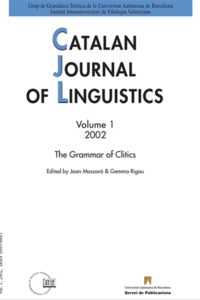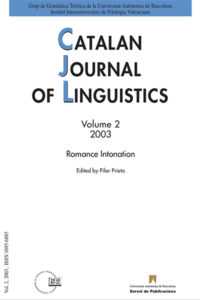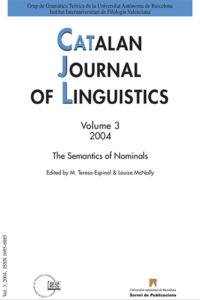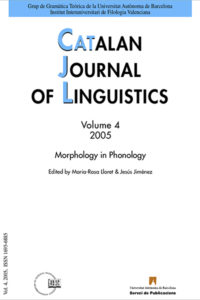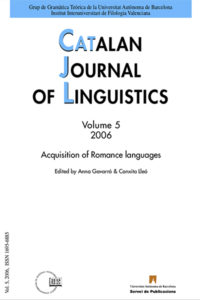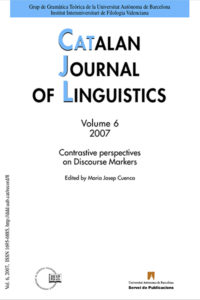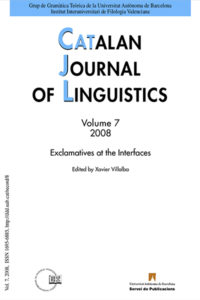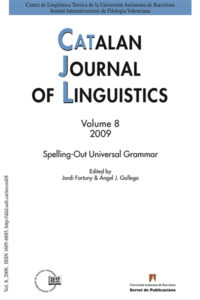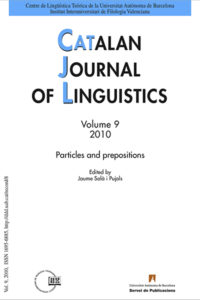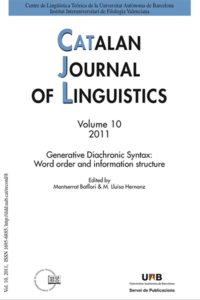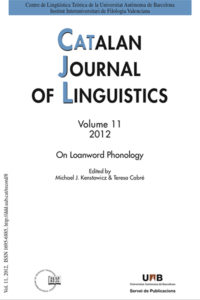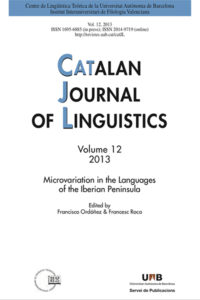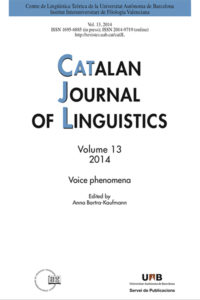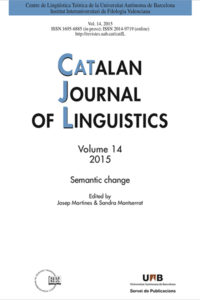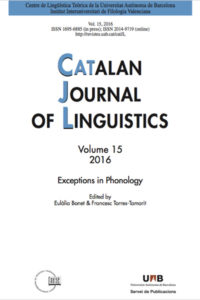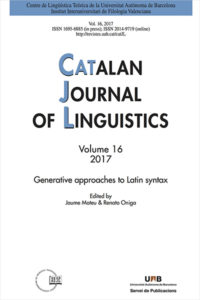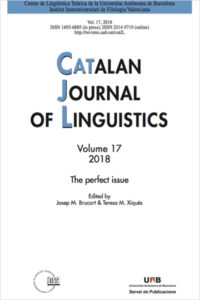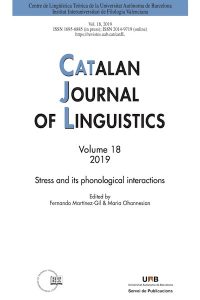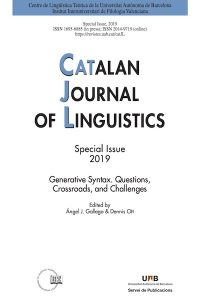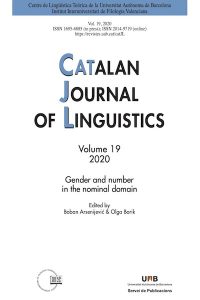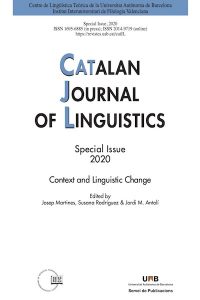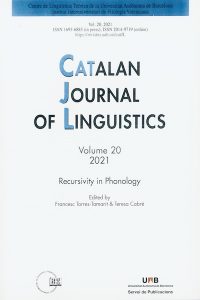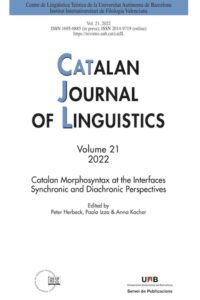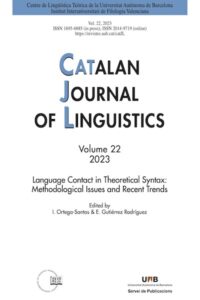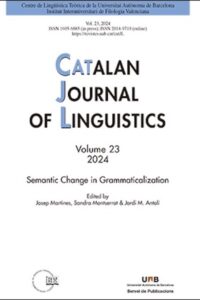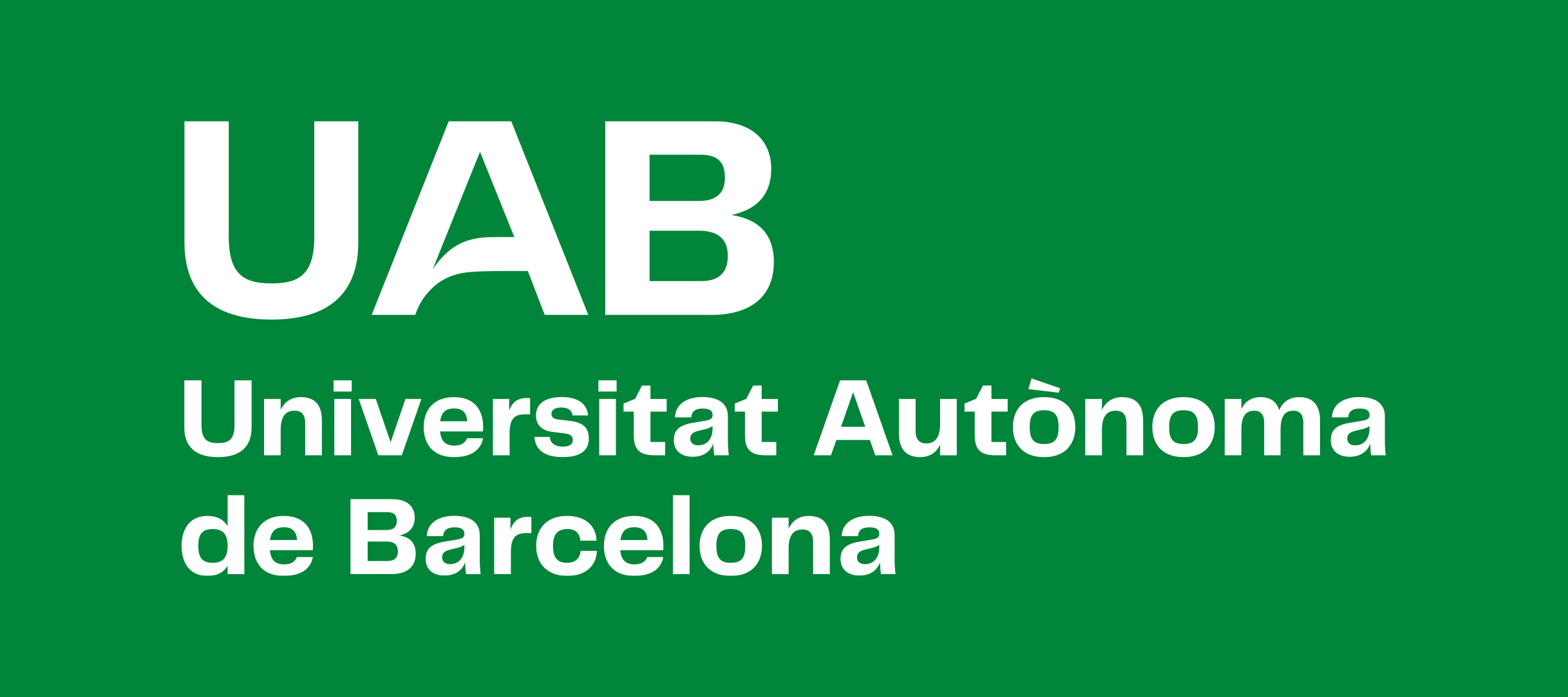Publicacions
Publications
![]()
![]()
![]()
Monografies CatJL
Col·lecció «Sèrie Lingüística»
Catalan Journal of Linguistics
L’objectiu principal de la revista Catalan Journal of Linguistics (CatJL) és la publicació d’articles de recerca que tinguin a veure amb l’estructura de les llengües des de la perspectiva més ampla d’una teoria general del llenguatge humà.
La revista CatJL, que és la continuació de Catalan Working Papers in Linguistics (CatWPL), es publica anualment gràcies a la cooperació entre el Centre de Lingüística Teòrica i l’Institut Interuniversitari de Filologia Valenciana.
Aquesta revista publica volums monogràfics que presenten articles de recerca sobre l’estudi formal de les llengües.
Journal Citation Reports
Rank by Journal Citation Indicator (JCI)
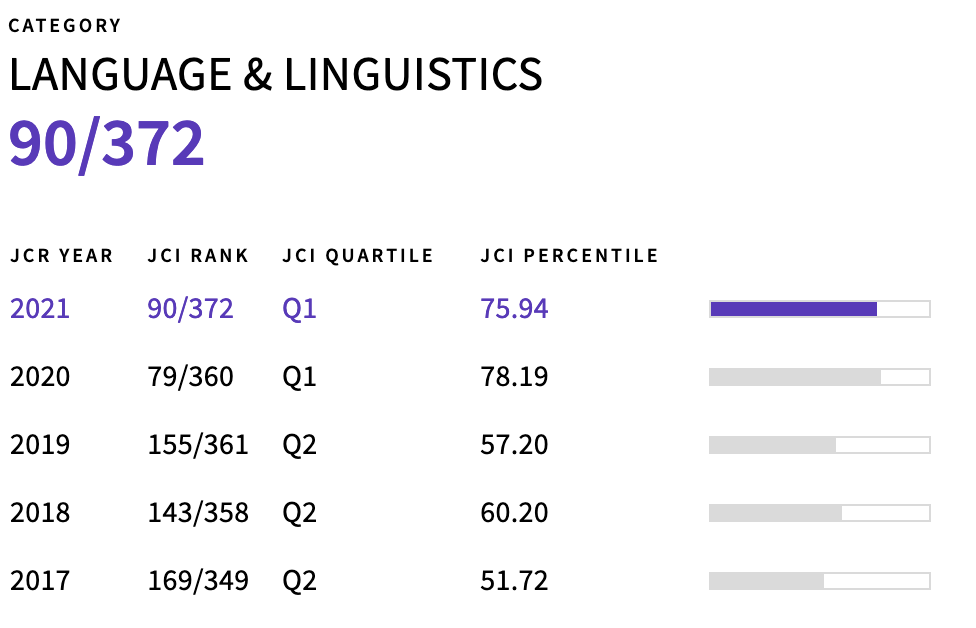
Catalan Journal of Linguistics
The main purpose of the Catalan Journal of Linguistics (CatJL) is to publish research papers concerned with the structure of particular languages from the wider perspective of a general theory of the human language.
Grown out of its predecessor, the Catalan Working Papers in Linguistics (CatWPL), this yearly publication is made possible thanks to the cooperation of the Centre de Lingüística Teòrica of the UAB with the Institut Interuniversitari de Filologia Valenciana.
This journal publishes monographic volumes (under commision) that feature research papers devoted to the formal study of languages.
Volume 24: The phonology-morphology interface in word-formation
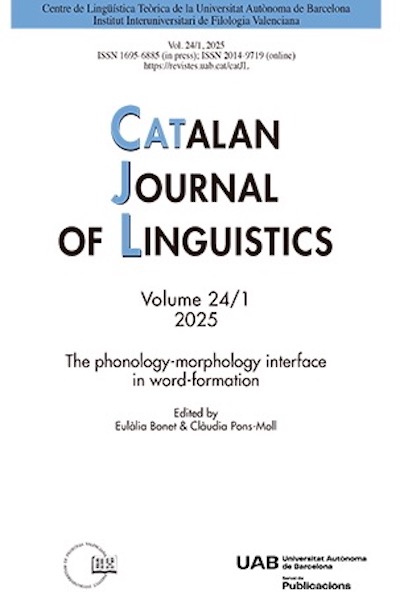
Autors:
E. Bonet & C. Pons-MollTítol:
The phonology-morphology interface in word-formationEditorial: Bellaterra: Servei de Publicacions de la UAB
Col·lecció: Catalan Journal of Linguistics #2025
Data de publicació: 2025
Pàgines: 325
Més informació
Text complet
This issue of Catalan Journal of Linguistics contains a selection of nine contribu-tions that were presented at the workshop “Nominal inflection and word-formation at the phonology-morphology interface” (NoWPhoMo), which took place in early 2024 at the Universitat de Barcelona (January 25) and at the Universitat Autònoma de Barcelona (January 26), as part of the coordinated research project Native and non-native phonology: Language contact effects and interaction with other com-ponents of grammar, PID2020-113971GB-C21 and PID2020-113971GB-C22. The edition of the volume was handled by project PID2020-113971GB-C22.
Títols de la col·lecció / Also in this series:
El Centre de Lingüística Teòrica (CLT) té per objectiu l’estudi del llenguatge i de les llengües naturals des d’una perspectiva teòrica i experimental.
Contacte
Centre de Lingüística Teòrica
Edifici B, Campus UAB
08193 Bellaterra (Spain)
Telèfon: (+34) 93 581 23 72
Fax: (+34) 93 5812782
cr.clt@uab.cat

